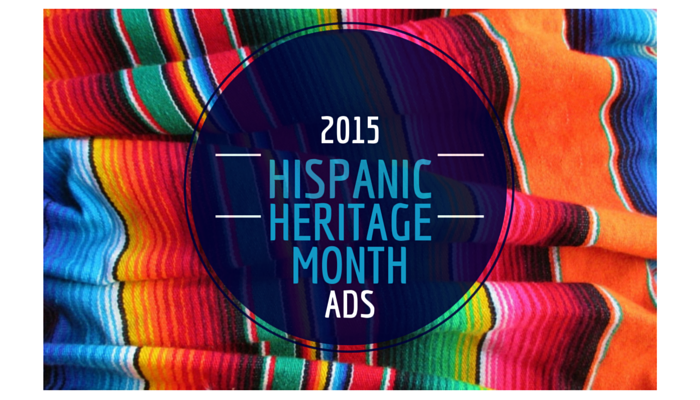Hispanic Heritage Month is a festive time period that gives brands the opportunity to connect with Latinos, even if it is not an “official” Hispanic holiday, such as Mexican Independence.
As experts in the U.S. Hispanic market, we take every opportunity to share campaigns that reach out to our community in authentic, respectful, and effective ways. This year we saw a wide range of efforts that pushed the digital envelope and showed a deep understanding of Latinos and their culture.
Here are three campaigns that used different approaches to connect successfully with Latinos:
What the brand did: As part of its Mi Tradición Hispana campaign, Ford created culturally relevant GIFs representing Hispanic traditions and the common ways Latinos interact. Ford leveraged social media by encouraging users to share their favorite GIF. This resulted in positive engagement through views, likes, and shares.
Why it worked for Hispanics: Ford tapped into two important Hispanic insights: The ability to find humor in everything, and the drive to live life with passion. This resulted in funny and authentic GIFs that did not pander to stereotypes. The content was representative of all Hispanics, with cultural nuances from different countries and even took note of generational differences. In some cases, it mixed English and Spanish, which we applaud when it’s done well. Ford showed that there is no substitute to understanding your consumers in depth and generating genuine content that represents them – this holds true any time of the year, not just during Hispanic Heritage Month.
What the brand did: Coca Cola shined with its clever, dual purpose campaign #OrgullosodeSer, a platform to celebrate Hispanic Heritage while driving sales online. How did they pull this off? With a video featuring Latinos in the Los Angeles area who talked about the pride they have in their last names. The video is embedded in a larger e-commerce platform that facilitates the purchase of Coke bottles personalized with one’s family name.
Why it worked for Hispanics: Coke hit the nail on the head by combining Hispanic pride with e-commerce and leveraging a powerful emotional appeal that gave consumers the opportunity to showcase their pride in their family names. They were invited to put their personal stamp on the product. After all, who wouldn’t like to see their last name on a bottle of Coke at a family get-together? The result: Consumers feel represented and proud, and Coca-Cola sells more product.
What the brand did: Last year, Macy’s turned to Latina bloggers and performers to connect with U.S. Hispanic women. This year, the department store leveraged male influencers and celebrities like actor Mario López, singer and songwriter Don Omar, and makeup artist Ángel Merino to reach their female shoppers online. The three influyentes celebrated Hispanic cultural values and explained how they contributed to society, while Macy’s invited customers to meet the influencers in person at various locations.
Why it worked for Hispanics: Macy’s got consumers’ attention by appealing to women‘s interests in a way that went beyond mirroring them in ads. The store showed that what’s important is to have a voice that properly represents the interests of the Hispanic female consumer and her community, whether it is beauty, fashion, culture or entertainment. With this insight, Macy’s and its celebrity male influencers captured the attention of consumers while being respectful of their heritage.
While Hispanic Heritage Month is only one month out of the year, as a Hispanic digital agency we believe passionately, and advocate, that reaching out to U.S. Hispanics should be a year-round effort. Latinos will take note and be grateful, and your work will be rewarded in the form of engaged consumers.
